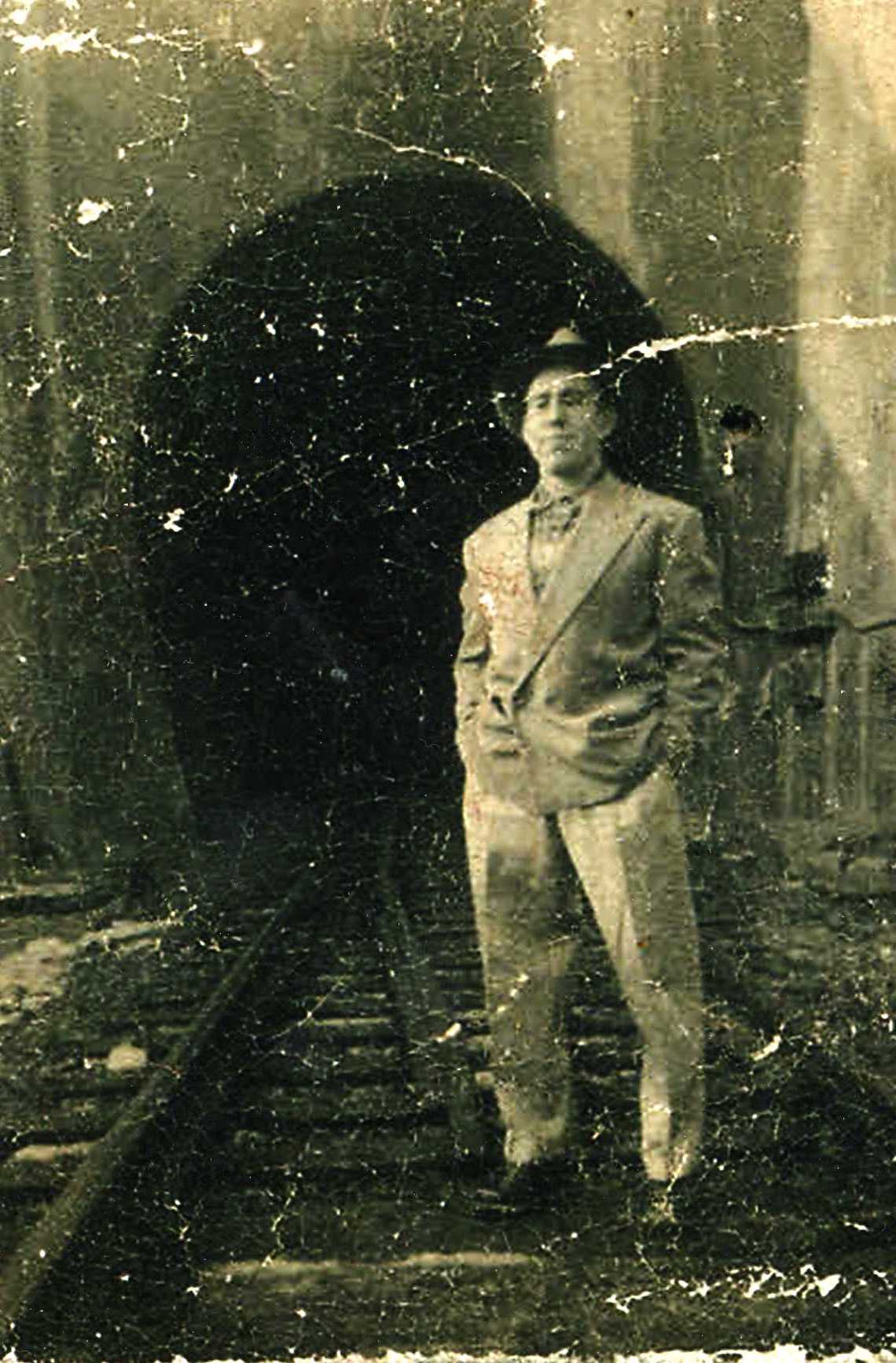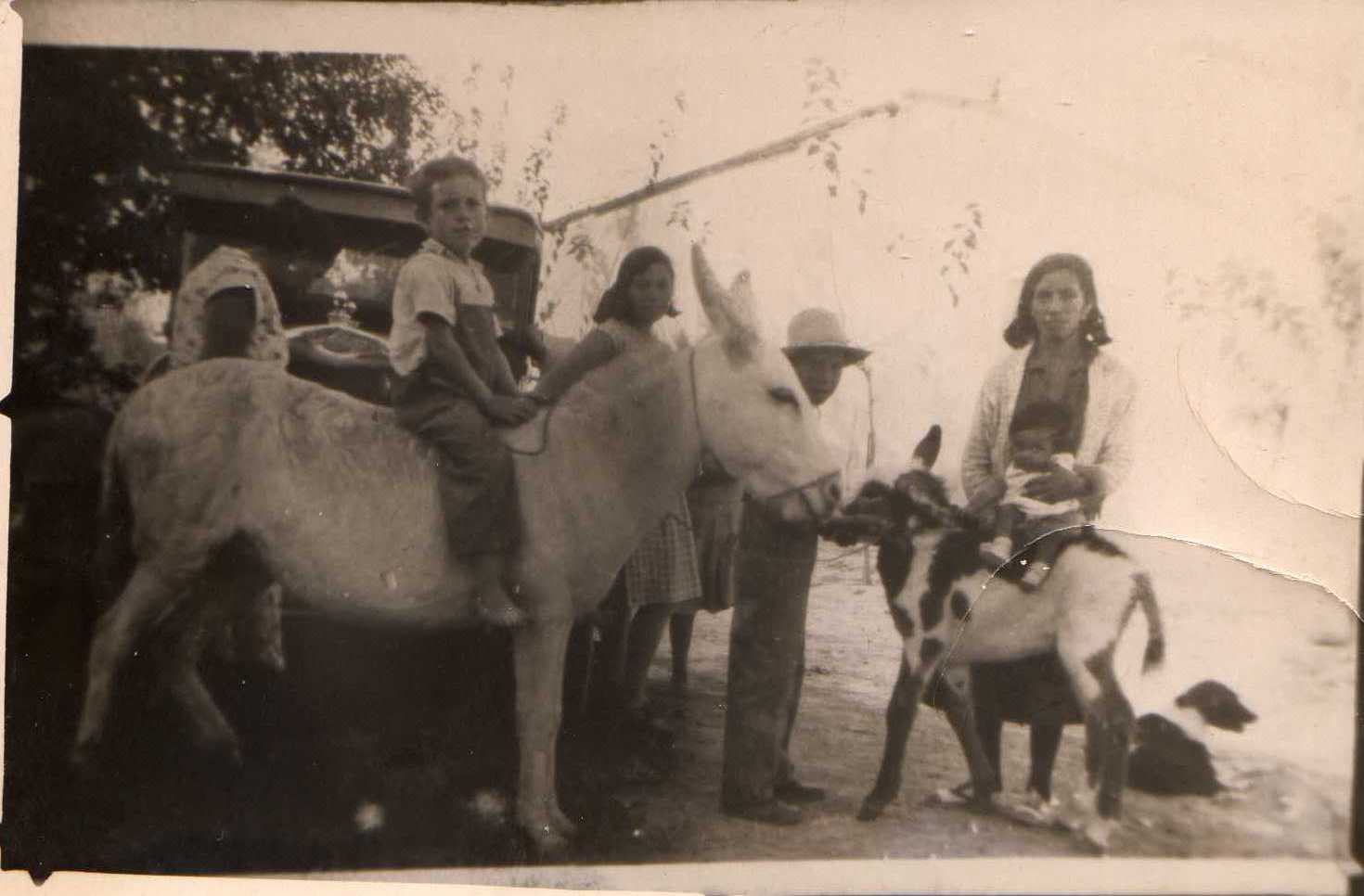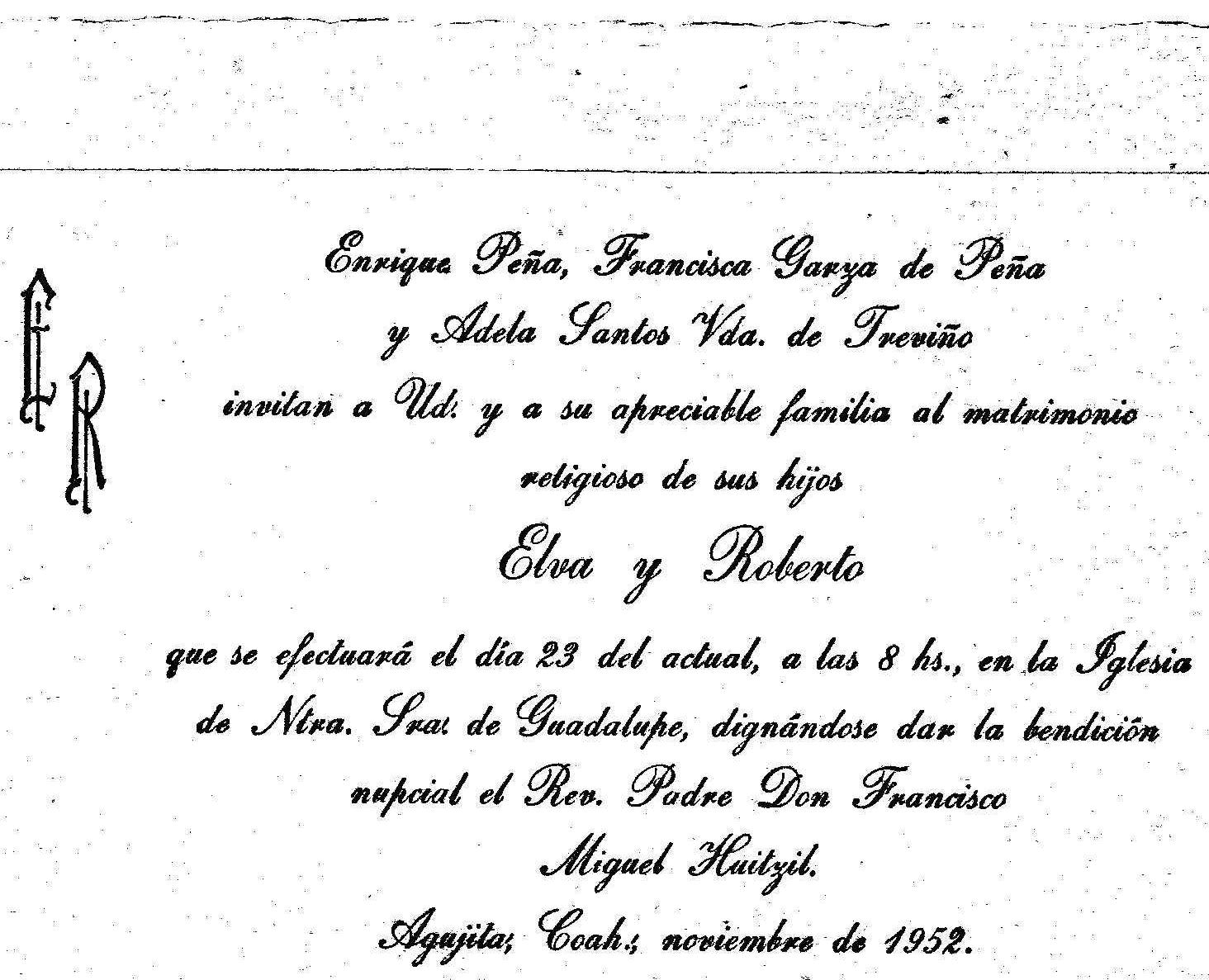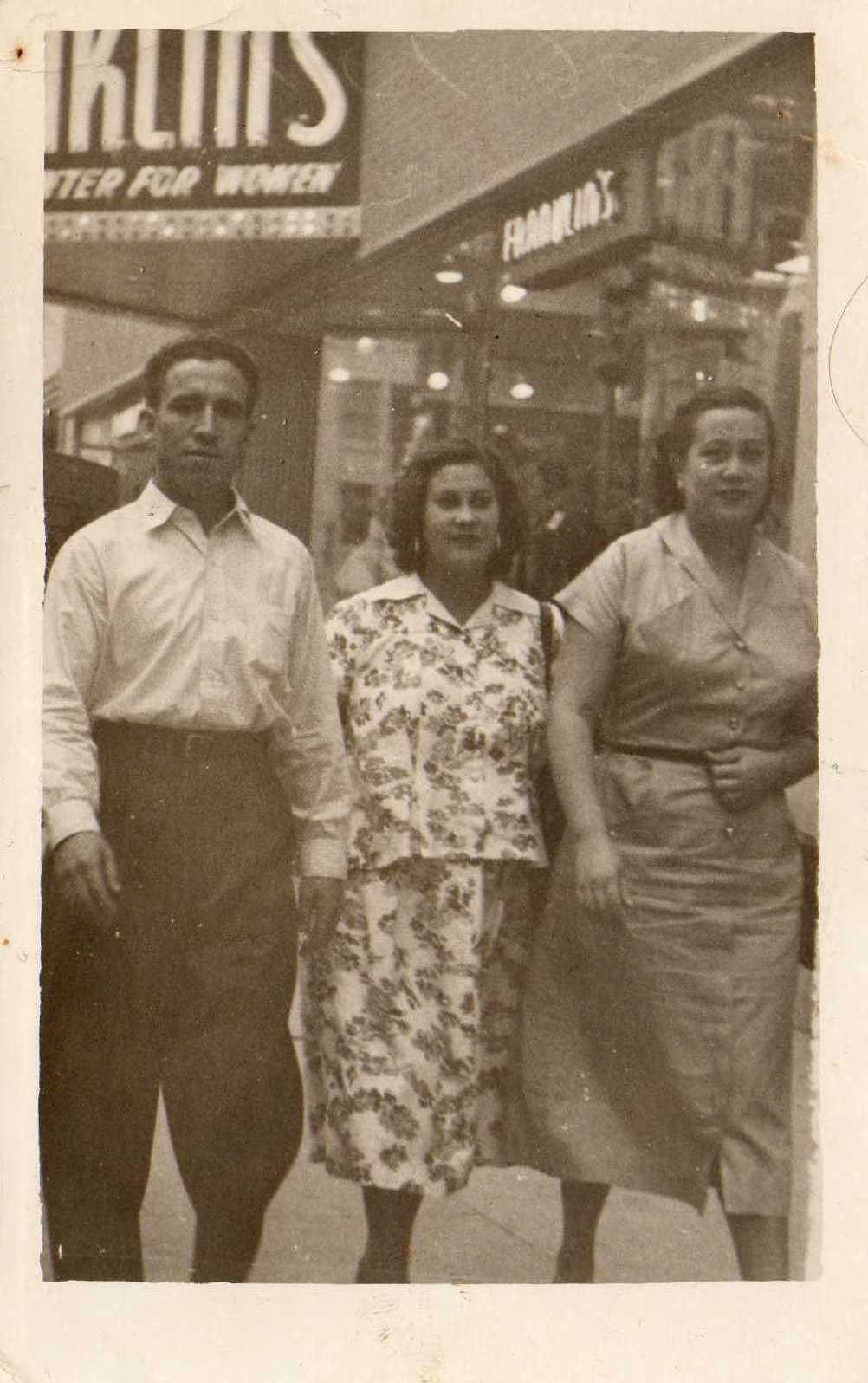Roberto Trevino

San Antonio, Texas
March 17, 2007
Adrian Trevino
Palo Alto College
History 1302 - Spring 2007
INTRODUCTION
Roberto Trevino Santos was born on May 27th 1924 to Antonio Trevino Tarin & Adela
Santos Trevino in Juarez Coahuila,
Mexico. Roberto has four brothers and one sister; Reynaldo, Dora, Antonio, Ramiro and
Oscar Trevino. Roberto was only able to attend school to the 10th grade due to having to help
support his family. Roberto was married in November of 1952 to Elva Pena in Agujita Coahuila,
Mexico. He lived in Sabinas Coahuila, Mexico till his early twenties then crossing over the
border to find work in Everton, Wyoming as a railroad watch man with the
Union Pacific; his
job was to clear the railroads in the tunnels of any deris to prevent derailments of trains.
He then later made his home in San Antonio, Texas working with YMCA for 20 years as a janitor.
Roberto and Elva Trevino have a total of six childern; Robert, Elizabeth,Ramiro, Hector, Oliva
and Ottoniel Trevino. Roberto stong religious catholic beliefs and struggle to make a better life for his family has paid off. Currently Roberto enjoys his time with his children, grandchildren and great grandchildern as a loving fater and grandfather.
TRANSCRIPTION
What was life like as a child having to help your mother and siblings knowing you father was gone? How hard was it?
It was hard because my father passed away when my mother was three months pregnant with me. I didn't feel it that my father passed away because I never met my dad. My mom was like a father mother figure and she was very strict. It was not hard because I was the baby of the family; there were five siblings older than me. I started shining shoes when I was six, to help my mother.
 What do you remember most about your childhood in Mexico?
What do you remember most about your childhood in Mexico?
I remember a lot of things, mainly when I used to tend to the cows (in the house) to help my mother.
What kind of games as a child did you play?
(Laugh) I used to make my own little cars made of sardine cans. We used to put them all together to make a train.
As a child in Mexico, when someone was sick and needed medical attention. What was done to assist in medical treatment?
My mother used to make home remedies, like sugar with petroleum for the throat.
What type of work or job did you have in Mexico before you crossed to the United States?
I used to have a work truck used to carry coal from the mines to be processed.
What made you make the decision to make the move to the states?
I got married and wanted a better life.
When was your first time crossing over to the United States and what was your
experience?
1944, I was about 18 yrs old. It was like an adventure because it was hard in Mexico and I needed to help my family.
Who did you cross over with to the states? Where you alone or did you come with friends or siblings? Describe your journey.
I crossed over my wife went to Eagle Pass to San Antonio and San Antonio to Wyoming.
 Did you have any trouble crossing over to the United States?
Did you have any trouble crossing over to the United States?
No not all. It was $25 each to cross over.
What were your main struggles when you first came over to the states?
No, I had no struggles just discrimination. During the war (World War II) it was easier to get a job because everyone was off at war.
What was your first job when you were in the states and explain you hardships as being a minority in the states? Did you face discrimination?
I worked for Union Pacific on the tracks and my supervisor was American and he was very nice. I felt discrimination with co workers that I worked with because my supervisor favored me a lot.
What was the passion in your heart the kept you to drive and work in life to what you have now?
The main thing was to work hard to elevate my children because I did not want for my children to suffer what I suffered as a child.
Where you already considered an American when you go married? If not how did you get your wife to the United States?
No, we came together.
If there was one thing that you could change or help to prevent during you life time what would that be and why?
For my family to be more united, for my whole family to be close.
 If you had not migrated to the United States what do you thing you life would be like right now?
If you had not migrated to the United States what do you thing you life would be like right now?
I never thought about it but it would be hard if I had not crossed over.
Now that you have crossed over to the United States and made your home here, do you consider yourself a Mexican or an American?
I am always a Mexican until the day I die.
ANALYSIS
In doing my interview of my grandfather I feel as if I have really connected with him. I really feel a pride for my heritage and to know where I came from. If it wasn't for him finding a pursuit for happiness and a better living, I really don't know where my family would be at today. The most important point in doing this interview for me was the understanding the struggle it takes to have what you want in life and making it better, as the saying goes "If you put your mind to it, you can accomplish anything". When speaking with my grandfather I didn't know a couple of things, one was that he lost his father during the Mexican Revolution and never knowing his own father. Second, when he crossed over with my grandmother he first lived in Everton, Wyoming working with the Union Pacific. In interviewing my grandfather it was very interesting, I learned a lot form some of his stories about immigration, mainly not to give up in life even when times are tough and that your family comes first. Some of the stories that my grandfather told me I have also heard from my aunts and uncles on the struggles my grandfather had in pursuing a better life here in the United States. I don't feel that there were any drawbacks in learning about my families past. It really benefited me more that anything in learning my families past and struggles to have a better life. I can know tell the stories that my grandfather told me to my son so that he knows how our family struggled for a better life coming from Mexico to the United States. Overall, I believe this was an effective way to learn about our families past, due to the fact that it came first hand from someone who lived during this time of struggles of immigrating to the United States.
ANNOTATED BIBLIOGRAPHY
Juarez Coahuila,Mexico.
World 66 The Travel Guide.Describes the city of Juarez Coahuila, Mexico, the city that
Roberto Trevino was born and raised.
Union Pacific. Wyoming's Railroads Histoy.
Cultural Resource Specialist, Wyoming State Archives, Design & Maintained by wyarchive@missc.state.wy.us ©1997-1999
home remedies. Mexgrocer.com, Home Remedies. Copyright © 2000-2004 MexGrocer.com. All Rights Reserved.
Eagle Pass,Texas. Copyright 2007 100 S. Monroe Eagle Pass, Texas 78852 830-773-1111.
AIER Cost-of-Living Calculator.The calculator uses the Consumer Price Index to do the conversions. The source for the data is the Bureau of Labor Statistics. The calculator converts the cost of items in American dollars from 1913 to the present. Organized in 1933 as a private, independent, scientific, and educational charitable organization, the American Institute for Economic Research plans its research to help individuals protect their personal interests and those of the Nation. American Institute for Economic Research (AIER), P.O. Box 1000, Great Barrington, Mass 01230. http://www.aier.org/colcalc.html. (2005).
Mexican Revolution. Wikipedia The Free Encyclopedia.Wikipedia® is a registered trademark of the Wikimedia Foundation, Inc., a US-registered 501(c)(3) tax-deductible nonprofit charity.
Return to Oral History Project
Created on
September 11, 2002, Revised January 29, 2007




